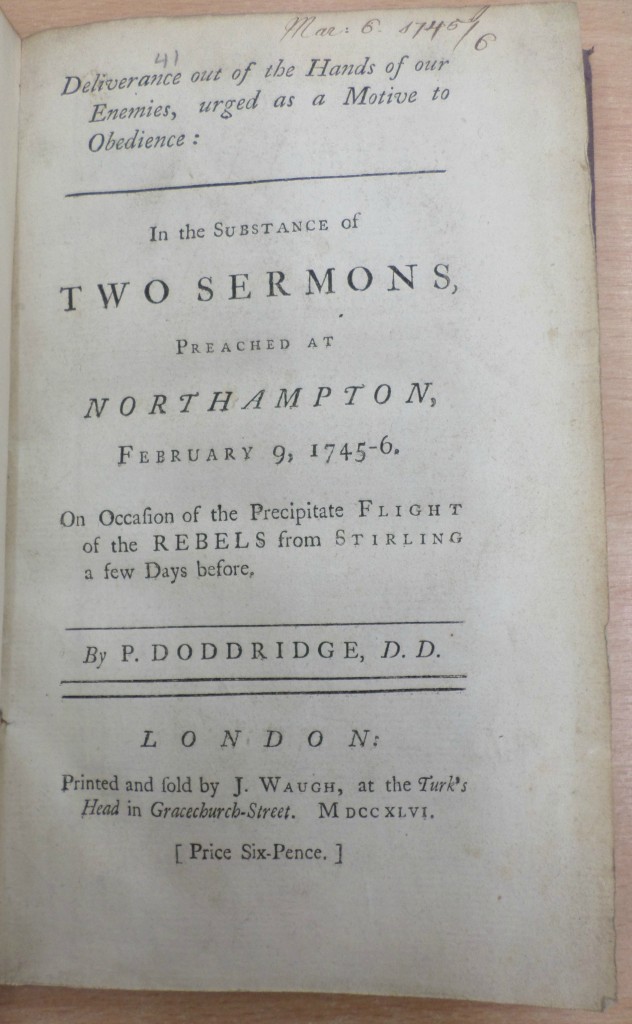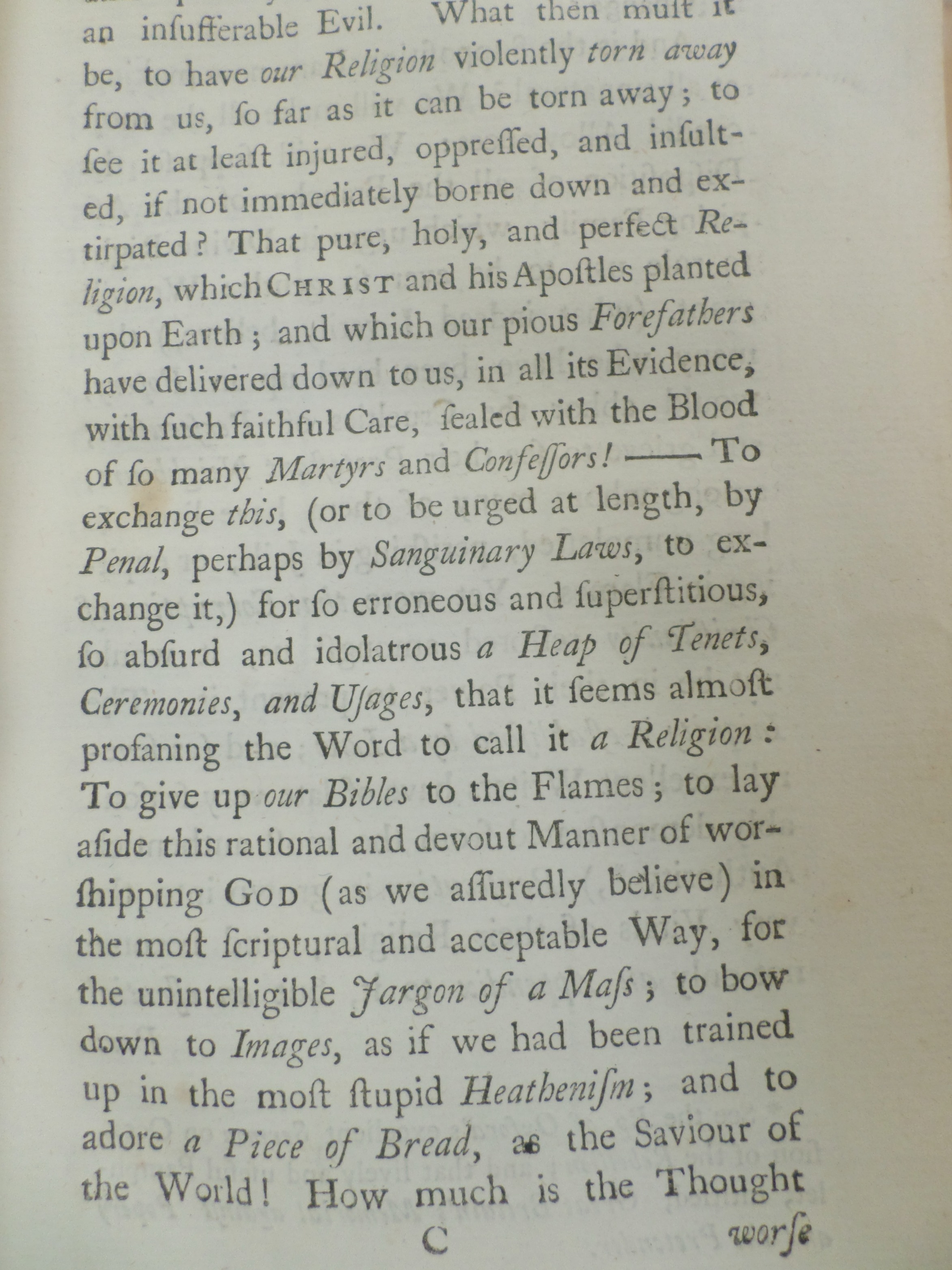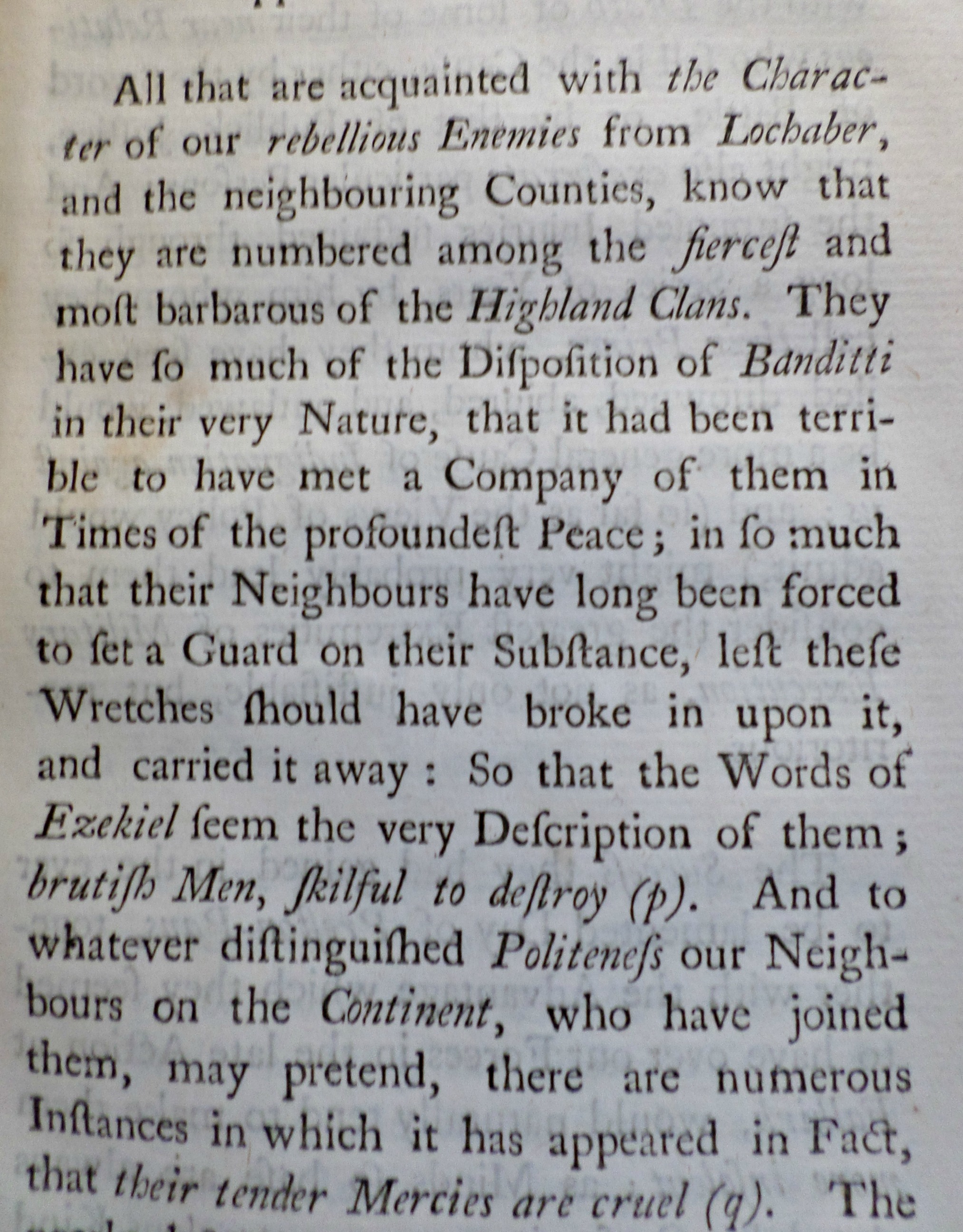
Title: In the SUBSTANCE of TWO SERMONS, PREACHED AT NORTHAMPTON, FEBRUARY 9, 1745-6. On occasion of the Precipitate FLIGHT of the REBELS from STIRLING a few Days before.
Author: Phillip Doddridge
Published: 1746
Location: 252.05241 FM 2002
What is this Book About?
This book is based on two sermons Doddridge delivered at Northampton on February 9th 1746. It also contains a hymn and a list of Doddridge’s other publications.
It was written after the Battle of Falkirk 1746, on the occasion of the withdrawal of Prince Charles and his Highland Chiefs from Stirling Castle. Their forces split up and agreed to meet again in Inverness.
The sermon suggests that there was genuine fear that the rebels would reach as far South as Northampton and indeed get to the Capital and Doddridge endeavours “to make you sensible of the Greatness of this Deliverance”
He asks his audience to “Consider, how our Possessions, and Liberties, our Religion, and Posterity would have been affected”, in the event of the Highlanders reaching them.
The mid part of the sermon describes “some particular circumstances” and offers some interesting historical commentary and footnotes on the Rebellion.
The latter part of the sermon, “The Return” contains exhortations on how to serve God because of and exampled by, this deliverance.

Why Does This Book Matter?
This book matters because it provides an interesting viewpoint on the Rebellion and the Church. Doddridge was a non-conformist, and the language he uses with regard to the Roman Church is not what we’d call politically correct. Doddridge isn’t very flattering about the Jacobites either.
He begins by telling his congregation and readers that they should be extremely grateful for their deliverance.
Possessions were at threat: if the rebels hadn’t been turned back “they had in a few hours entered our Houses with haughty Violence.” Later on in the Sermon, Doddridge describes “The Character of our rebellious Enemies from Lochaber,” as “among the fiercest and most barbarous of the Highland Clans. They have so much of the Disposition of Banditti in their very Nature”.

Liberties were threatened: “Yet what but Slavery could we have expected, had our Throne been filled by one, trained up in the oppressive Maxims of the French and the Roman Courts.”
Then Doddridge asks how terrible it would be to have “our Religion violently torn away from us…for so erroneous and superstitious, so absurd and idolatrous a Heap of Tenets, Ceremonies and Usages, that it seems almost profaning the Word to call it a religion.”
And in even stronger terms: “for the unintelligible Jargon of a Mass, to bow down to Images, as if we had been trained up in the most stupid Heathenism: and to adore a Piece of Bread, as the Saviour of the World.”
The strength of Doddridge’s language shows the real fear of a return to papal domination aroused by the Jacobite Rebellion and makes this book a useful commentary on the Church at that time.
Who Would Enjoy This Book?
If you have an interest in the Jacobites this book will be worth a read.
Melanie Manwaring-McKay
